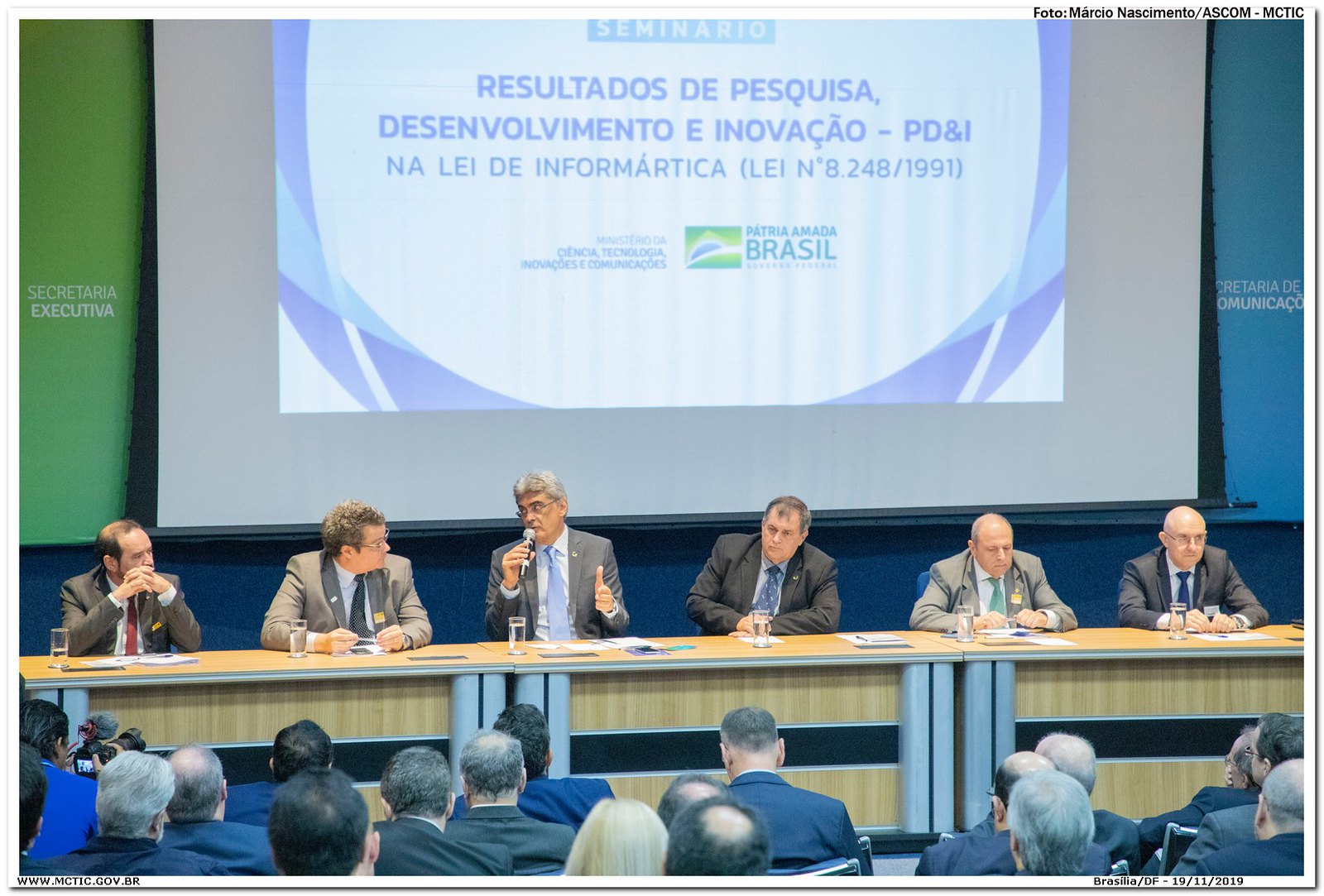
The acting minister stressed that the law is an example of an incentive policy and helped to transform research and development in the country
The Information Technology Law is one of the best examples of successful sectoral development policy, said the acting Minister of Science, Technology, Innovations and Communications, Julio Semeghini, this Tuesday (19), at the opening of the Seminar on Results of Research, Development and Innovation (RD&I) in the Information Technology Law, in Brasília. “This law has managed to form in Brazil the appropriate environment to face the great digital transformation that the world will now enter. More than that, it placed Brazilian companies in an international context of research and development”.
The RD&I Seminar on the Informatics Law presented the most relevant results achieved by industries, research institutes and academia in the 28 years of existence of the incentive policy. The Information Technology Law (Law nº 8.248/1991) grants tax incentives to Brazilian companies producing information technology, automation and telecommunications goods. On the other hand, companies are obliged to invest part of the revenue from the commercialization of these products in research, development and innovation in the country. Jamile Sabatini Marques, Director of Innovation and Development at ABES, attended the seminar in person in Brasília (DF).
According to Julio Semeghini, it is necessary to show society the results already obtained by the Information Technology Law in almost 30 years. “We need to point and see where the investments are coming. It is necessary to show what this law has done and is doing for Brazil.” For him, one of the benefits of the law is to allow science and technology to be taken to all regions of the country. “Part of the investments of companies in RD&I has to be applied in the North, Northeast and Midwest.”
Results of
For the MCTIC Secretary of Entrepreneurship and Innovation, Paulo Alvim, the legacy of the Information Technology Law for the country is very significant. “We have a history of success and success. It is a time to give visibility and celebrate the results of the work of government, companies and research institutions. Much has been done and much remains to be done.”
The IT Law encourages the installation of manufacturing plants, the hiring of human resources and the increase in the production of IT goods for consumption in the Brazilian market. More than 600 companies and 300 universities and research institutes have already benefited from the law.
Each year, companies invest around R$ 1.5 billion in science, technology and innovation and earn more than R$ 46 billion from the incentivized goods. Although it is a tax waiver instrument, the law has a surplus because it increases revenue by more than R$ 4 billion. In addition, it is responsible for generating 135,000 direct jobs.
The opening ceremony of the seminar also had the participation of the president of the Brazilian Electric and Electronic Industry Association – Abinee, Humberto Barbato; the president of R&D Brazil, Carlos Porto; the Federal Secretary of Internal Control of the CGU, Antônio Carlos Leonel; and the undersecretary for Industry, Tólio Ribeiro.












